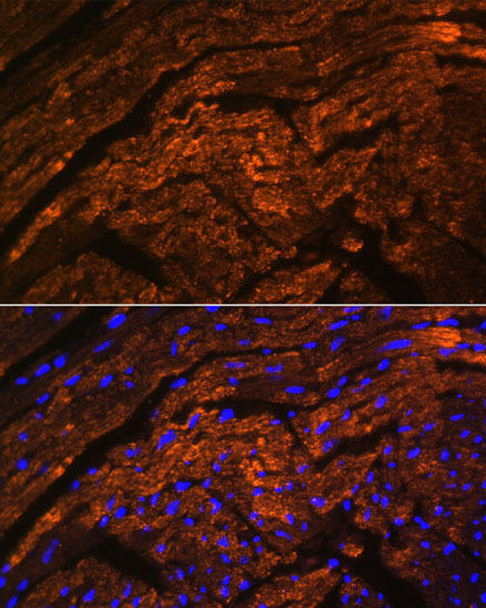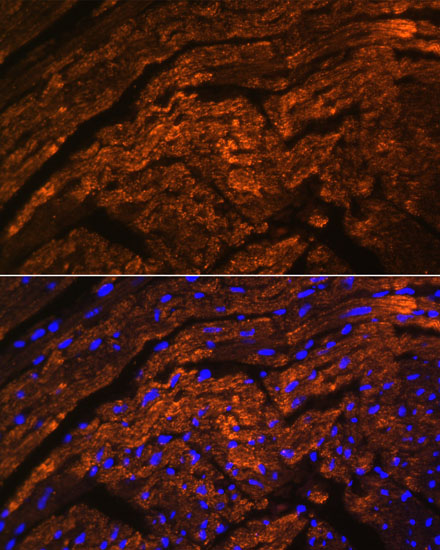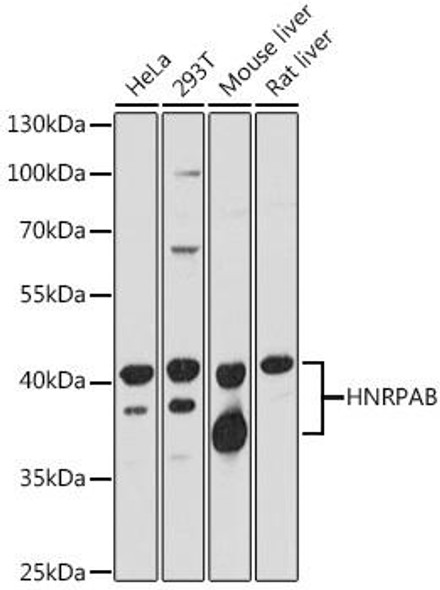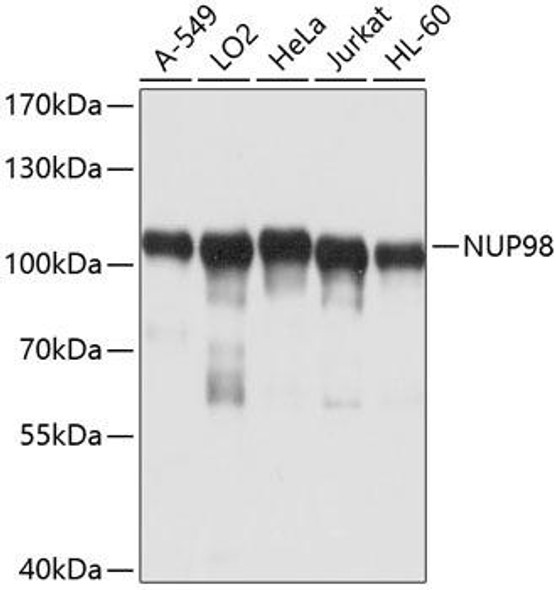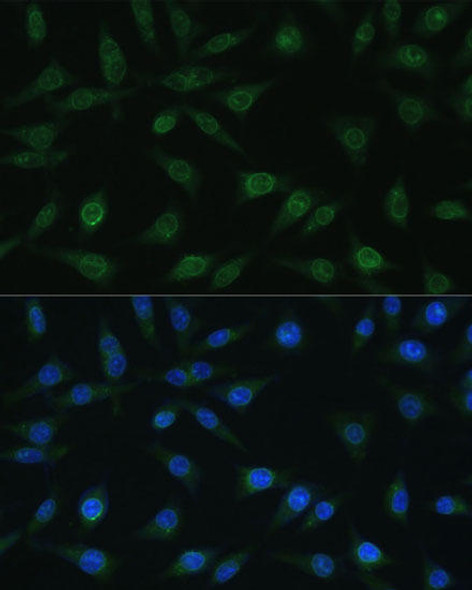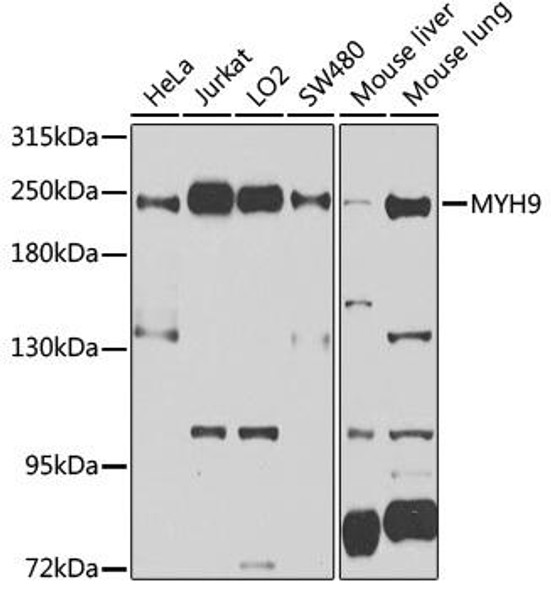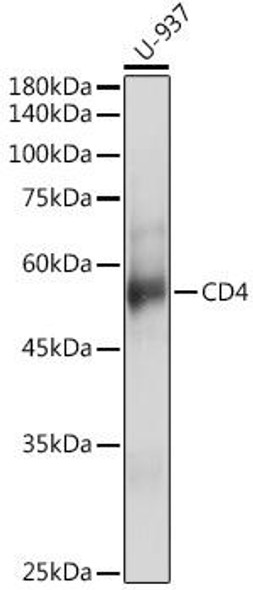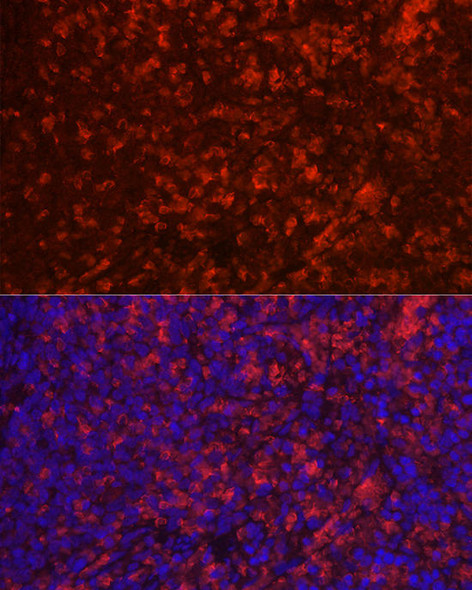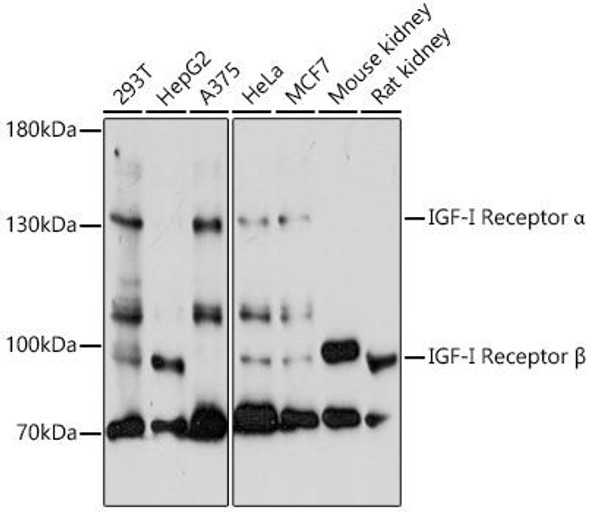Description
TTN Rabbit Polyclonal Antibody (CAB16730)
The TTN Polyclonal Antibody (CAB16730) is a vital tool for researchers studying the giant sarcomeric protein titin. This antibody, generated in rabbits, demonstrates high reactivity towards human samples and is validated for use in Western blot applications. It specifically targets the titin protein, allowing for precise detection and analysis in a variety of cell types.Titin is the largest known protein, playing a crucial role in muscle elasticity and function. Research on titin is essential for understanding muscle physiology and disorders such as muscular dystrophy and heart disease.
The TTN Polyclonal Antibody is a valuable asset for investigating the structure and function of titin in different cell types, making it an ideal choice for studies in muscle biology and disease research.By using the TTN Polyclonal Antibody, researchers can enhance their understanding of titin and its implications for muscle health and disease. This antibody provides a valuable tool for furthering research in areas such as cardiac biology, muscle development, and therapeutic targeting of muscle-related conditions.
| Product Name: | TTN Rabbit Polyclonal Antibody |
| SKU: | CAB16730 |
| Size: | 20uL, 100uL |
| Isotype: | IgG |
| Host Species: | Rabbit |
| Reactivity: | Mouse,Rat |
| Immunogen: | Recombinant fusion protein containing a sequence corresponding to amino acids 5347-5604 of human TTN (NP_596870.2). |
| Sequence: | LDVL PFNF VDPN MDSR EGED KELK IDLE VFEM PPRF IMPI CDFK IPEN SDAV FKCS VIGI PTPE VKWY KEYM CIEP DNIK YVIS EEKG SHTL KIRN VCLS DSAT YRCR AVNC VGEA ICRG FLTM GDSE IFAV IAKK SKVT LSSL MEEL VLKS NYTD SFFE FQVV EGPP RFIK GISD CYAP IGTA AYFQ CLVR GSPR PTVY WYKD GKLV QGRR FTVE ESGT GFHN LFIT SLVK SDEG EYRC VATN KSGM AESF AALT LT |
| Tested Applications: | IF/ICC ELISA |
| Recommended Dilution: | IF/ICC,1:50 - 1:200 |
| Synonyms: | TMD; CMH9; CMD1G; CMPD4; CMYP5; EOMFC; HMERF; MYLK5; SALMY; LGMD2J; LGMDR10; TTN |
| Cellular Localization: | condensed nuclear chromosome, cytosol, extracellular exosome, extracellular region, I band, M band, striated muscle thin filament, titin-telethonin complex, Z disc |
| Calculated MW: | 3816kDa |
| Observed MW: | Refer to figures |
This gene encodes a large abundant protein of striated muscle. The product of this gene is divided into two regions, a N-terminal I-band and a C-terminal A-band. The I-band, which is the elastic part of the molecule, contains two regions of tandem immunoglobulin domains on either side of a PEVK region that is rich in proline, glutamate, valine and lysine. The A-band, which is thought to act as a protein-ruler, contains a mixture of immunoglobulin and fibronectin repeats, and possesses kinase activity. An N-terminal Z-disc region and a C-terminal M-line region bind to the Z-line and M-line of the sarcomere, respectively, so that a single titin molecule spans half the length of a sarcomere. Titin also contains binding sites for muscle associated proteins so it serves as an adhesion template for the assembly of contractile machinery in muscle cells. It has also been identified as a structural protein for chromosomes. Alternative splicing of this gene results in multiple transcript variants. Considerable variability exists in the I-band, the M-line and the Z-disc regions of titin. Variability in the I-band region contributes to the differences in elasticity of different titin isoforms and, therefore, to the differences in elasticity of different muscle types. Mutations in this gene are associated with familial hypertrophic cardiomyopathy 9, and autoantibodies to titin are produced in patients with the autoimmune disease scleroderma.
| Purification Method: | Affinity purification |
| Gene ID: | 7273 |
| Storage Buffer: | Store at -20℃. Avoid freeze / thaw cycles.Buffer: PBS with 0.01% thimerosal,50% glycerol,pH7.3. |


